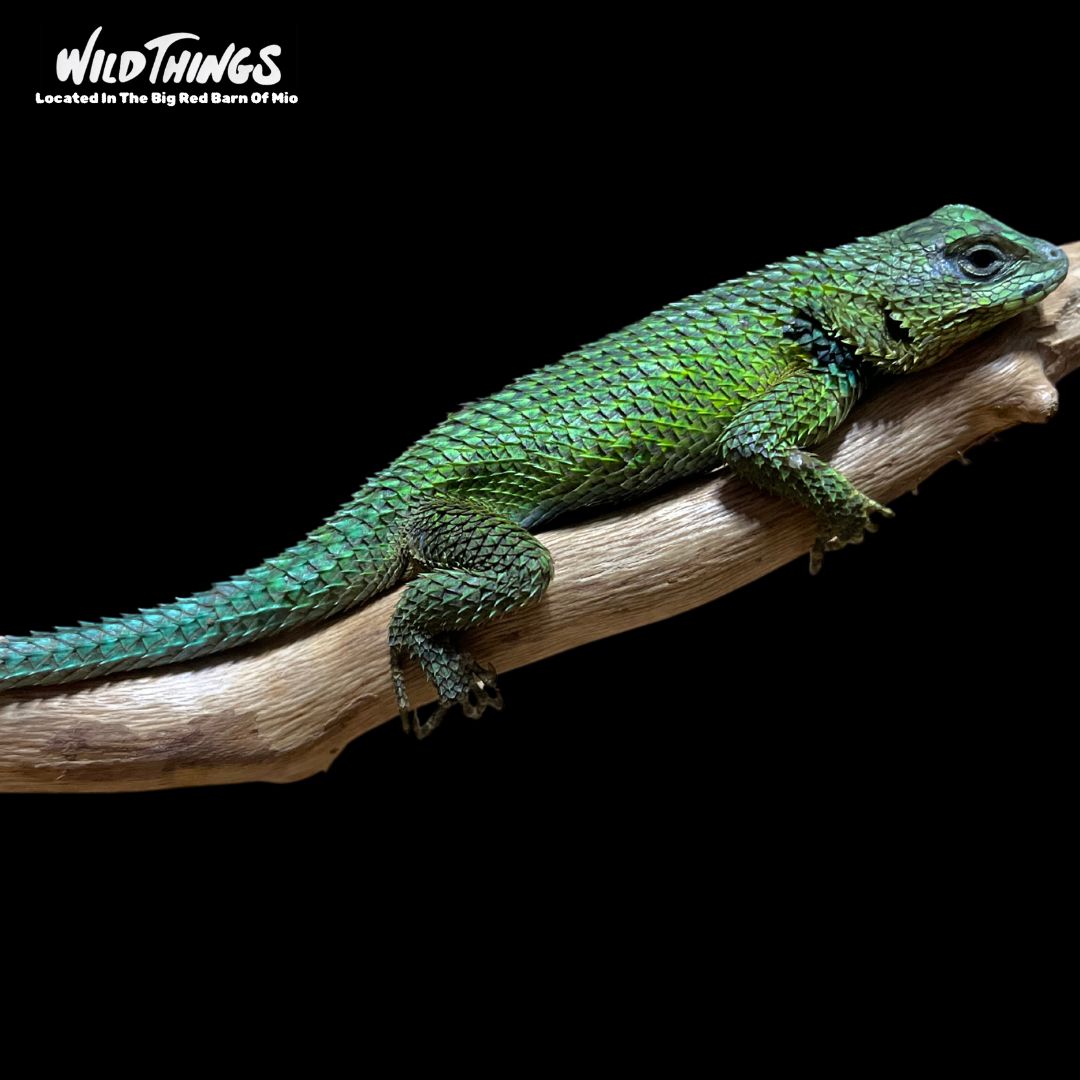AuSable River Outdoors
Emerald Swift
Emerald Swift
Couldn't load pickup availability
Species: Emerald Swift
Scientific Name: Sceloporus malachiticus
Origin: Central America
Lifespan: About 5 years
Size: 6”- 8”
Enclosure Type: Terrarium
Enclosure Size: The absolute minimum terrarium size for a single emerald swift is 36” L x 18” W x 18” H, or a 40-gallon breeder tank. Of course, larger is always better.
Substrate: Commonly used substrates for an emerald swift includes eco earth, reptisoil, plantation soil, and jungle mix.
Décor: To keep your emerald swift engaged, include decorations such as branches, cork tubes, cork flats, ledges, rock stacks, live or artificial plants, and a textured background.
Water: Of course, don’t forget a small water bowl for your gecko to drink from! Change the water daily and scrub the bowl with a reptile-safe disinfectant weekly, or whenever it becomes soiled.
Temperature: Emerald swifts should have a basking temperature of ~95°F, as measured by a digital probe thermometer with the probe placed on the basking surface. The cool side temperature should be between 75-85°F, and night temps can drop as low as 68°F.
Humidity: Emerald swifts are a tropical species, so the humidity inside their enclosure should be 60-80%. Humidity should be measured via digital probe hygrometer, with the probe placed in the middle of the terrarium. Increase humidity by misting the enclosure 1-2x/day with a spray bottle. Mist first thing in the morning, and then again at night if needed. Aside from raising humidity, this also provides an important source of drinking water.
Lighting: Emerald swifts require UVB lighting for their survival. UVB lighting helps provide a clear day/night cycle, provides all the vitamin D that your pet needs, strengthens the immune system, facilitates better digestion, and other benefits.
Type Of Diet: Carnivorous
Types Of Food: Dubia roaches, discoid roaches, red runner roaches, crickets, black soldier fly larvae, hornworms, mealworms, mealworm beetles.
Feeding Schedule: Juveniles should be fed daily, and adults should be fed 3-4x/week. Offer as many insects as your lizard can eat in one sitting.
Supplements: You will need calcium and vitamin supplements to prevent your gecko from developing a deficiency.
Share

